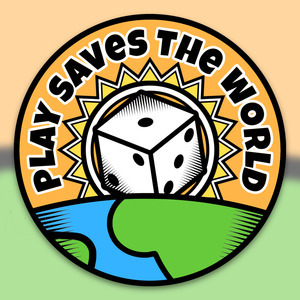Episode 3
Is Play Essential to the Human Experience?
April 17th, 2022
55 mins
Tags
About this Episode
After naming some recently revisited games, Daniel discusses some lessons learned at a recent conference on play. Is play essential to the human experience? How can we games be more inclusive? How does play shape our early childhood in important ways, and can this include Minecraft? The discussion moves into play as a means of grace, and that play according to rules might be an analogy of grace and law. Pop culture jokes include the clap-on lamp from the 80s, and dad jokes include a can of diced tomatoes that secretly contains bookoo dice. Next episode: the book The Grasshopper by Bernard Suits. And a happy Easter, Passover, and Ramadan!
Episode Links
- The Clapper
- Roll for the Galaxy | Board Game | BoardGameGeek
- Circadians: First Light | Board Game | BoardGameGeek
- Hadrian's Wall | Board Game | BoardGameGeek
- Pandemic | Board Game | BoardGameGeek
- Garphill Games
- 179: Special Guest: Bobby Hill. Plus Bitoku, Meeples & Monsters, So Clover, Jabba’s Palace | Board Game BBQ
- Home - US Play Coalition
- The Grasshopper - Third Edition - Broadview Press — [NOTE: This book does contain adult images.] In the mid twentieth century the philosopher Ludwig Wittgenstein famously asserted that games are indefinable; there are no common threads that link them all. “Nonsense,” said the sensible Bernard Suits: “playing a game is a voluntary attempt to overcome unnecessary obstacles.” The short book Suits wrote demonstrating precisely that is as playful as it is insightful, as stimulating as it is delightful. Through the jocular voice of Aesop’s Grasshopper, a “shiftless but thoughtful practitioner of applied entomology,” Suits not only argues that games can be meaningfully defined; he also suggests that playing games is a central part of the ideal of human existence, and so games belong at the heart of any vision of Utopia. This new edition of The Grasshopper includes illustrations from Frank Newfeld created for the book’s original publication, as well as an introduction by Thomas Hurka and a new appendix on the meaning of ‘play.’
